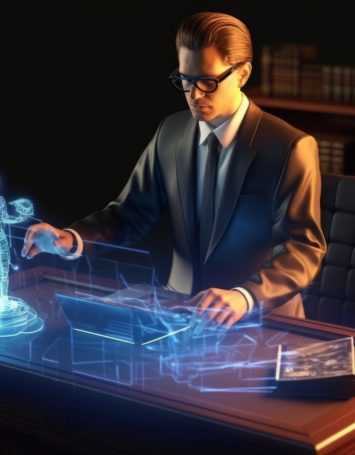Article by Clyde Shuman
A U.S. district court judge has denied the motion of Finjan Inc. to set aside a December jury verdict that found its competitor, Juniper Networks Inc., did not infringe Finjan’s malware patents. The court held in abeyance a Juniper’s motion for sanctions against Finjan.
In Finjan Inc. v. Juniper Network Inc., case number 3:17-cv-05659 (N.D. Cal.), the court had granted Juniper’s motion for summary judgment of non-infringement of one of Finjan’s patents. A subsequent jury trial found in favor of Juniper on another of Finjan’s patents, finding that Juniper’s Sky Advanced Threat Prevention product lacked the “database” recited in the asserted claim.
Finjan moved to set aside the verdict and the court’s denial of Finjan’s JMOL motion. Finjan argued that Juniper “concealed key evidence during discovery that proved that Sky ATP had a ‘database’ as recited” in the patent claim, and this “concealment” “prevented both the Court and the jury from evaluating this key evidence of how and where Sky ATP satisfies the ‘database’ element of Claim 10.”
Not to be outdone, Juniper moved for sanctions against Finjan, claiming Finjan pursued unsupported damages theories in bad faith, waffled on the issue of constructive notice in bad faith, claimed actual notice based on false statements, and asserted one patent claim without merit.
Addressing Finjan’s motion, the court found that Finjan had not shown by clear and convincing evidence that Juniper’s handling of discovery amounted to “misconduct” under Fed. R. Civ. P. 60(b)(3). Finjan also had not shown that the newly produced documents could not have been discovered through due diligence under Rule 60(b)(2).
The court also disagreed with Finjan’s argument that Juniper falsely represented that it had completed its document production in its entirety. Per the court, “By noting the production relating to the two products separately in its response, Juniper put Finjan on notice that Juniper treated Sky ATP and Joe Security as distinct products. And, as such, Juniper did not necessarily represent that it had completed production as to Joe Security.”
The court further rejected Finjan’s claim that it could not have moved to compel production earlier, saying, “Had Finjan diligently followed up on these disclosures with more targeted requests, it would have likely led to the production of the newly discovered documents at issue before [trial] or before the Court ruled on Finjan’s Rule 59 motion.”
The court concluded, “As the case moves along, counsel have a responsibility to stay on top of the status of discovery and to bring stubborn problems to the court’s attention. Counsel should not postpone that chore until after the verdict and then scour the discovery record for shortfalls by the other side.”
On Juniper’s sanctions motion, the court was pragmatic: “We have a long way to go before this case is over and each side is regularly accusing each other of misconduct. As such, the Court will DEFER RULING on this motion until the end of trial so that both sides’ alleged wrongs can be viewed in light of each other.”
In a separate order on remaining triable issues, the court laid out what it called a “rule of thumb” system for determining whether the case qualifies as “exceptional,” triggering payment of the winner’s attorney’s fees by the loser:
“Finjan shall state the amount claimed, patent by patent, and Juniper shall state the amount it concedes would be due as damages in the event liability is established, patent by patent. If…Finjan recovers less than half of its claimed amount and recovers less than twice the amount of Juniper’s conceded amount, then the court may presume that the maintenance of the infringement action on that patent qualifies as ‘extraordinary.’ In the event that Finjan recovers more than half of its claimed damages and more than twice the conceded amount, then the court may presume that Juniper must pay attorney’s fees associated with that patent.”
Finally, the court signaled its desire to have the remainder of the case run expeditiously, saying: “Do not try to enlarge the motion practice. Do not try to change the trial date.”



